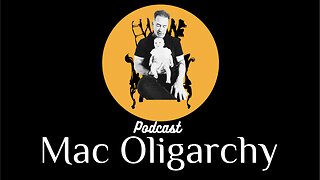MORTGAGE RATES WILL GO TO 10%?
TODAY'S VIDEO WILL GET INTO THE CURRENT STATE OF MORTGAGE RATES AND INFLATION.
*HISTORICALLY RATES ARE STILL VERY LOW AT 4%!!!!!
The average 30-year fixed mortgage rate increased for the third consecutive week to 3.69%
Rates are now at levels not seen since April 2020 — nearly two years ago
Last week’s increase is the biggest weekly increase since March 2020: Rising by 23 basis points over last week
Last week’s increase aligns with the rising rates many experts have long predicted in 2022
Federal Reserve Chairman Jerome Powell recently announced the Fed would begin winding down measures to support the economy during the pandemic, which is also likely to contribute to rising rates
Inflation is the highest it’s been in 40 years, according to the latest data released by the Bureau of Labor and Statistics (BLS) — it’s a key driver of rising rates, experts say.
Last week's increase contradicts speculation that surging COVID-19 cases and the Omicron variant might cause rates to decrease or remain flat
Despite the increase, mortgage rates are still significantly lower than pre-pandemic levels.
The average 30-year fixed mortgage rate jumped up again last week, to 3.63% — the highest it’s been since April 2020.
Last week’s jump — rising by 23 basis points — is the largest weekly increase in nearly 2 years. It’s also the third week in a row that rates increased. The rising rates can be partly attributed to a recent surge in inflation, experts say, which new data shows hit a 40-year high in December.
Despite the potential for surging COVID cases amid the current Omicron wave to put a damper on economic growth, last week’s increase is consistent with recent statements by Federal Reserve Chairman Jerome Powell that the Fed expects to raise rates three times in 2022. As the Fed increases rates with the economy improving, mortgage and refinance rates are sure to follow, experts say.
The December 2021 consumer price index✎ EditSign released by the Bureau of Labor and Statistics (BLS) suggests more rate increases should be expected as long as inflation continues. The 7% inflation in the last 12 months is the largest inflation surge in 40 years and is cited by experts and the Fed as a major factor behind rising rates.
Many experts predicted mortgage rates would reach this level in 2022, but they didn’t expect it to happen this quickly. Redfin chief economist Daryl Fairweather recently told us she thought rates would reach 3.6% by the end of 2022. “My expectation for when mortgage rates will increase is spread pretty evenly throughout the year,” said Fairweather.
Even if rates continue to inch upward, stay the same, or decrease, what’s important for homebuyers and homeowners isn’t where rates are headed, but making sure a refinance or home purchase is the right financial move for their circumstances.
No government entity sets or directly regulates mortgage rates. Rather, they’re based on a number of broader market factors. Everything from the demand for housing, inflation, and the overall health of the economy can influence mortgage rates — as well as refinance rates.
Typically, when the economy is strong and unemployment rates are low, rates will rise because demand is higher. But during an economic downturn rates tend to dip. This is why the economic impact of COVID variants is important to pay attention to when it comes to understanding mortgage rate trends.
Monetary policies set by the Federal Reserve can also have a significant impact on mortgage rates, even though they don’t directly set rates. When the Federal Reserve lowers the federal funds rate or purchases large quantities of treasury bonds, it puts downward pressure on mortgage rates.
Your monthly mortgage payment typically comprises mortgage, interest, and escrow payments. And what on the surface may look like a small increase in your interest rate, can have a big impact on your bottom line. So it’s important to compare mortgage lenders to ensure you’re getting the best deal.
How Does Your Credit Score Affect Your Rate?
Aside from macroeconomic factors that are out of your control, your personal situation will also influence the interest rate you’re eligible for. Your down payment and credit score can have a big impact on your mortgage rate.
Lenders set mortgage rates based on how risky they determine a loan to be. So having a lower credit score, or smaller down payment will increase the rate you’re likely to qualify for. On the other hand, improving your credit score and having a bigger down payment can have the opposite effect and reduce your interest rate. While each lender has different standards, having a down payment of at least 20% and a credit score of 700 to 740 will typically get you the lowest mortgage rate.
If you’re having trouble qualifying for a mortgage or getting a decent interest rate, you may have better luck with a government-secured loan.
-
 1:14:04
1:14:04
NONCONFORMING-CONFORMIST
1 month agoYOU HAVE TO PAY A LOT AND IN SO MANY WAYS TO TAKE PART IN THIS WORLD
282 -
 35:39
35:39
Degenerate Jay
20 hours agoGoldenEye 007 Saved James Bond - Movie Review
23.6K2 -
 14:54
14:54
Mr Reagan
20 hours agoWE ARE ALL MAGA NOW
18.7K40 -
 15:35
15:35
Space Ice
19 hours ago'The Beekeeper' Exposes The Dark, Gritty, & Violent World Of Apiculture - Best Movie Ever
19.4K20 -
 3:29:53
3:29:53
SonnyFaz
23 hours agoEric Kelly Trains Sonny FULL STREAM
22.1K8 -
 9:32
9:32
China Uncensored
13 hours agoBad Things Are Happening In Taiwan...
24.8K18 -
 38:24
38:24
Tucker Carlson
11 hours agoTucker Carlson and Donald Trump Jr. Respond to the Trump Verdict
114K598 -
 2:01:47
2:01:47
Fresh and Fit
11 hours agoOne Hit Wonder 🤡 Kicked Off For THIS...
185K395 -
 34:19
34:19
Alexis Wilkins
17 hours agoBetween the Headlines with Alexis Wilkins: The Verdict and More
49.1K30 -
 1:11:21
1:11:21
Kim Iversen
17 hours agoWW3?!? Is The West Secretly Behind Another Color Revolution Aimed At Toppling Russia? | Biden Maniacally Bombs Yemen and Russia
94.2K95